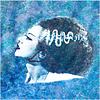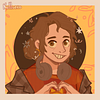Take a photo of a barcode or cover
What would you do with your time if you didn't have to spend a third of your day asleep? How would your life change if you were genetically predisposed to intelligence? What if these traits allowed you functional immortality?
Genetic engineering has progressed to the point where parents are able to pre-select desirable traits for their children, including intelligence, low-risk factor for diseases, and the newest modification: sleeplessness. Freed from the demands of a night unconscious, the children thrive, learning faster than any genius in history, gaining the admiration of all humanity. But when it's discovered that the Sleepless will also never age past their mid-twenties, the mass of un-tampered humanity turn upon them, limiting their jobs and rights, until the Sleepless realize they must splinter off from humanity and become something new. But giving up your humanity may very well mean giving up your soul.
This book had been on my shelf for years, given by a friend, and I kept putting it off. I wish I hadn't. It's intriguing, both in the initial concept, and further in, as we come to the morality of the Sleepless. The constant question of the Beggars--what are we obligated to do for the mass of unfortunates, when what little resources we have would be so stretched thin as to be meaningless when bestowed?--is a serious question for middle class and up individuals in the US; those who are in the position to bestow financial gifts, but unable to bestow so much to solve all of the world's ills.
Greatly recommended!
Genetic engineering has progressed to the point where parents are able to pre-select desirable traits for their children, including intelligence, low-risk factor for diseases, and the newest modification: sleeplessness. Freed from the demands of a night unconscious, the children thrive, learning faster than any genius in history, gaining the admiration of all humanity. But when it's discovered that the Sleepless will also never age past their mid-twenties, the mass of un-tampered humanity turn upon them, limiting their jobs and rights, until the Sleepless realize they must splinter off from humanity and become something new. But giving up your humanity may very well mean giving up your soul.
This book had been on my shelf for years, given by a friend, and I kept putting it off. I wish I hadn't. It's intriguing, both in the initial concept, and further in, as we come to the morality of the Sleepless. The constant question of the Beggars--what are we obligated to do for the mass of unfortunates, when what little resources we have would be so stretched thin as to be meaningless when bestowed?--is a serious question for middle class and up individuals in the US; those who are in the position to bestow financial gifts, but unable to bestow so much to solve all of the world's ills.
Greatly recommended!
I've been wanting to read this book for a long time, and I wasn't disappointed. While the "futuristic" aspects of the story were a little silly, since it starts in the near future--2008, the philosophical arguments were still worth arguing about. I thought the characters, especially the ones that told the story (Leisha, Jennifer, Jordan, Miranda), were very well developed and interesting to watch struggle, succeed, fail and interact with one another. Well worth the read!
I'd probably give this three stars overall as it kind of lost me and bored me and multiple sections. I added an extra star because it has a cool mix of hard sci-fi and sort of biopunk sci-fi. I also found the way that she tackled economic systems and politics in a very complicated way to be interesting. The message I got from it by the end was not one I totally liked, but there are parts of it that I liked. And I do like that it's not as easy to see it as a binary of two philosophies fighting.
Nebula and Hugo award winning author Nancy Kress has yet another wonderful combination with her Beggars Trilogy (also known as Sleepless trilogy) which starts off with Beggars in Spain, continues with Beggars and Choosers, and comes (almost) full circle with Beggars Ride (although all three books can easily stand alone.)
Beggars in Spain started out as a novella and that novella still seems visible within the novel, which had three very distinct parts (in some ways it might have been better left as a novella~or in separate parts as it did seem to drag on a bit, and the breaks were quite visible). The basic premise (though there are so many philosophical ideas and arguments tossed about in these books it's a little difficult to narrow down) is that if people could be genetically programmed to function without sleep they would be able to accomplish a great deal more. These genetically enhanced humans are known (logically enough) as Sleepless and not only do they have superior beauty and intelligence, they also do not seem to age. What could be better than that? Well apparently being like everybody else, because as societies have proven again and again, "if it is different we must destroy it." Examining issues of diversity, genetic engineering, meritocracy, socialism, separatism, and enterprisism, Beggars in Spain offers much food for thought without being too didactic.
Beggars in Spain started out as a novella and that novella still seems visible within the novel, which had three very distinct parts (in some ways it might have been better left as a novella~or in separate parts as it did seem to drag on a bit, and the breaks were quite visible). The basic premise (though there are so many philosophical ideas and arguments tossed about in these books it's a little difficult to narrow down) is that if people could be genetically programmed to function without sleep they would be able to accomplish a great deal more. These genetically enhanced humans are known (logically enough) as Sleepless and not only do they have superior beauty and intelligence, they also do not seem to age. What could be better than that? Well apparently being like everybody else, because as societies have proven again and again, "if it is different we must destroy it." Examining issues of diversity, genetic engineering, meritocracy, socialism, separatism, and enterprisism, Beggars in Spain offers much food for thought without being too didactic.
reflective
medium-paced
I really liked a lot of this book but not others. I guess this is more like a 3.5 for me. The science was great and I appreciated the unexpected ramifications of the experiements done and the unforeseen consequences. Interesting because it is true in science and technology today. We don't really know the consequences of a lot of the things that are new and supposedly great for us. I liked it.
If you are more interested in quality concepts than actual writing ability, this is the book for you. Kress' "Sleepless" are fascinating to think about, and the world she creates is intriguing from the start. That is where my positive comments on the book end. Kress' characters are flat and weak - she chooses to introduce new characters, rather than fleshing out her existing ones. While the intended plot is clear, Kress often chooses to jump drastically in time and space, leaving you wondering "how did we get to this point??" I often found myself wondering if Kress herself knows what happened during the time between her jumps (from her writing, it seems unlikely that she does).
This is a book whose concept (humans who don't need sleep) I will discuss with my book club - but I do not believe we will have any praise for the writing, plot, development, etc. I cannot fathom how it has managed to win so many awards.
This is a book whose concept (humans who don't need sleep) I will discuss with my book club - but I do not believe we will have any praise for the writing, plot, development, etc. I cannot fathom how it has managed to win so many awards.
slow-paced
Plot or Character Driven:
Plot
Strong character development:
No
Loveable characters:
No
Diverse cast of characters:
No
Flaws of characters a main focus:
Yes
This review has some really vague spoilers. Mostly mention of dates in the novel.
I love this book series. The world and character are decently well built. But I also have some issues with it. The biggest one is that Nacy Kress can't seem to move time in this novel at a consistent pace. I started to notice this about half way through the book. The book seem to jump around a lot. Stating in one year, but seeming to go back before that year and then like twenty years after that stated year with out warning, then back again.
Something happens at the end of the book. The date says it's 2092 when this specific event happens, but according to her second book intro it states it happened in 2101. The books states that a group of people did the thing 13 years prior to 2114. That's a nine year gape that she doesn't really explain what happened to said group of people and it really needs ad explanation with how big the event was. You can also tell this with one of the characters age. The book states that In 2092 this one character is suppose to be sixteen. the same character is also suppose to be sixteen in 2101. The sense of time in this series is honestly really confusing.
Sorry if this was confusing. I was trying to explain it as spoiler free as I could.
I love this book series. The world and character are decently well built. But I also have some issues with it. The biggest one is that Nacy Kress can't seem to move time in this novel at a consistent pace. I started to notice this about half way through the book. The book seem to jump around a lot. Stating in one year, but seeming to go back before that year and then like twenty years after that stated year with out warning, then back again.
Something happens at the end of the book. The date says it's 2092 when this specific event happens, but according to her second book intro it states it happened in 2101. The books states that a group of people did the thing 13 years prior to 2114. That's a nine year gape that she doesn't really explain what happened to said group of people and it really needs ad explanation with how big the event was. You can also tell this with one of the characters age. The book states that In 2092 this one character is suppose to be sixteen. the same character is also suppose to be sixteen in 2101. The sense of time in this series is honestly really confusing.
Sorry if this was confusing. I was trying to explain it as spoiler free as I could.
What if humans didn't need sleep: this is a fascinating premise, and the book caught me by surprise by exploring not so much personal or psychological implications but societal ones.
The ending left me with a strange feeling: on one hand it didn't feel like a definite resolution, but on the other it feels strange knowing that there are two more books that follow this one. We'll see how it goes.
The ending left me with a strange feeling: on one hand it didn't feel like a definite resolution, but on the other it feels strange knowing that there are two more books that follow this one. We'll see how it goes.




